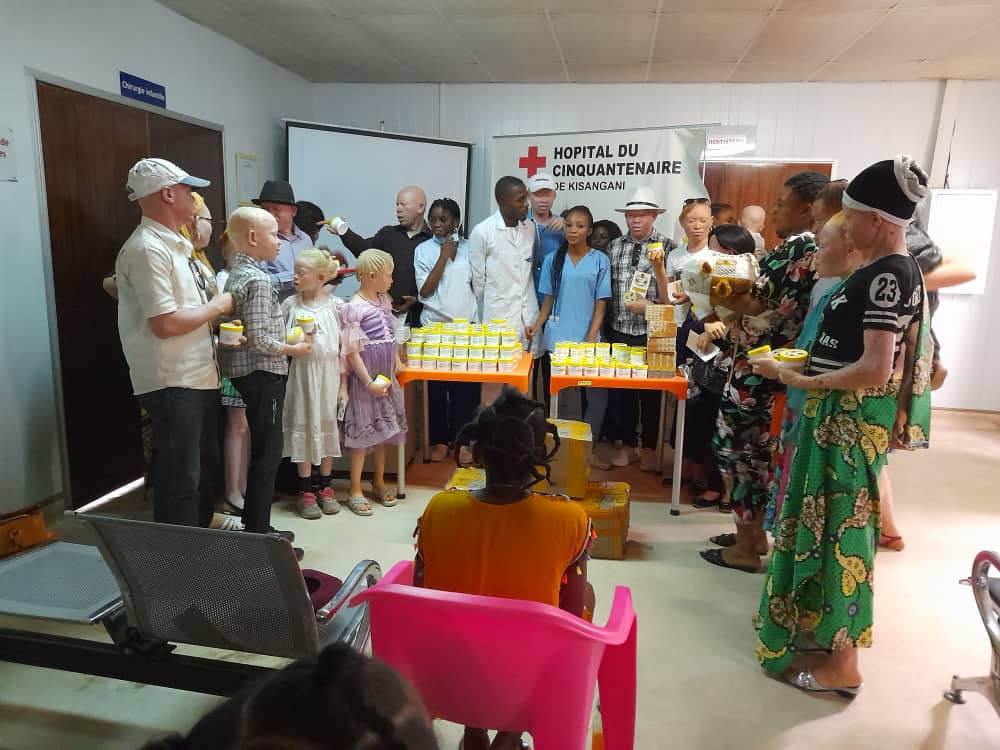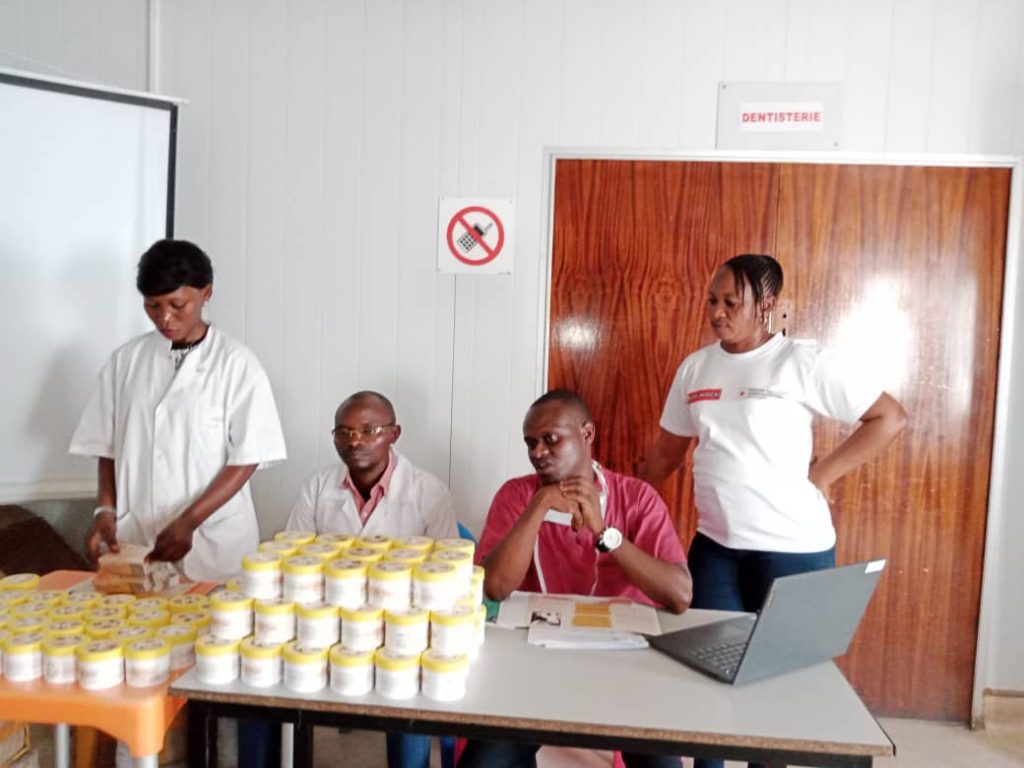The Democratic Republic of Congo (DRC) is a sub-Saharan African country with a high number of people with albinism according to clinical observations and scientific publications. It is estimated that there are between 18,500 and 92,000 people with albinism in the 22 provinces that make up the country, although the number increases in regions such as Kasai and Tshopo where consanguineous marriages are frequent.
We implemented this project hand in hand with the local NGO CORBETTA based in Kisangani led by Dr. Inena Gaylord and fighting since 2014 for the prevention against skin cancer. Together with them, we support and accompany people with albinism who live extremely complex situations. It is a project with many difficulties due to the precarious infrastructures of the country and the difficult access to health that most of the population has.
Some of the most significant problems are that throughout the DRC, access to sunscreen creams is very limited because of their scarcity but also because of the high prices. In addition, there is no national policy on the care and services needed for people with albinism, as well as for their protection and condemnation of crimes against them.
Our work in DRC
In the DRC, we work in 3 areas of the country: Kinshasa, the capital, Mbuyi Maji in Kasaai Oriental and Kisangani, in the Tshopo province.
- We run mobile clinics that integrate the delivery of dermatological services with the distribution of our sunscreen creams. Since 2021, we have already distributed creams to 569 people with albinism at dermatology clinics.
- We conduct health education and social awareness sessions.
- Patients identified with skin cancer are surgically intervened by Corbetta’s medical staff and collaborators. Thirty-seven major and minor surgeries have already been performed, while 153 patients were treated with cryotherapy, an intervention in which intense cold is used to freeze and destroy cancer cells and abnormal tissue.
- Health personnel in the areas where we work have been trained in the management of dermatological problems related to albinism.
The challenges to be faced
As we said, albinism is a genetic condition present in the DRC with all its complications. Skin cancer is present and conditions the quality of life of many people with albinism. Although these cancers are easy to prevent and cure when detected early, many times they are in such advanced stages that it is very difficult to intervene.
Mobile clinics move to rural areas as many people with albinism live in remote areas with no means of transportation or communication. The lack of materials for surgery and a single cryotherapy kit complicate the work of health personnel.
Despite all the difficulties we will continue working to support more people with albinism in the country, because with education and prevention we can improve their living conditions. And in this way our work will make sense.



